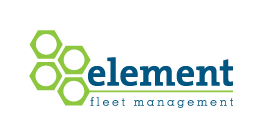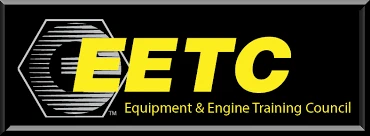
Archive for September 2019Steve & Stacy's Servicenter Automotive Tips: AlternatorPosted September 22, 2019 8:50 AMYour alternator makes electricity to start and run your engine and all of the vital electrical systems in your vehicle. That’s everything from the on-board computers to the turn signals. And of course there is the entertainment system, seat heaters, power windows and everything you plug into the power outlets. After your alternator makes enough electricity to do all that, it recharges your battery with what’s left over. Make your Service Visit at Steve & Stacy's Servicenter a Good OnePosted September 15, 2019 10:47 AMMost people don't love going to get their vehicle serviced, but it's one of those things you just have to do. So you might as well get the most of out of it. There are some steps you can take that will likely help you get the best results possible. For one thing, it's important to describe your problem (or problems) to the service advisor accurately and clearly. If your vehicle is making a noise, for example, take time to really listen to it and think of the best way to describe it. Does it increase in speed when you go faster? If you feel a vibration somewhere, where in the vehicle does it seem to originate? Some service advisors recommend writing things down. That way the driver won't forget any important clues that could lead to a successful resolution of the problem. Another thing is to make sure your vehicle is cleaned out and free of junk. That way the technician can access those nooks and crannies where some vital components may be. If your vehicle is full of strollers, boxes or your collection of fast food containers, it won't be easy for the technician to reach some of those parts. Oh, and if your vehicle is neat, it does send a signal that you really care about it. Finally, stay out of the way of the technician. A recent survey of technicians reveals they work more efficiently and do a better job when they don't have someone hanging on their every move. Can you imagine how you'd feel if someone hovered over you all day while you were trying to get your work done? Steve & Stacy's Servicenter | ||
SearchArchiveApril 2016 (16)May 2016 (5) June 2016 (4) July 2016 (5) August 2016 (4) September 2016 (4) October 2016 (5) November 2016 (4) December 2016 (4) January 2017 (5) February 2017 (4) March 2017 (4) April 2017 (3) May 2017 (4) June 2017 (5) July 2017 (5) August 2017 (3) September 2017 (3) October 2017 (5) November 2017 (4) December 2017 (3) January 2018 (5) February 2018 (4) March 2018 (4) April 2018 (5) May 2018 (4) June 2018 (4) July 2018 (5) August 2018 (4) September 2018 (5) October 2018 (4) November 2018 (4) December 2018 (5) January 2019 (5) February 2019 (4) March 2019 (4) April 2019 (4) May 2019 (4) June 2019 (5) July 2019 (4) August 2019 (4) September 2019 (5) October 2019 (4) November 2019 (4) December 2019 (5) January 2020 (5) February 2020 (4) March 2020 (5) April 2020 (4) May 2020 (5) June 2020 (4) July 2020 (4) August 2020 (5) September 2020 (3) October 2020 (4) November 2020 (5) December 2020 (4) January 2021 (6) February 2021 (4) March 2021 (4) April 2021 (4) May 2021 (5) June 2021 (4) July 2021 (4) August 2021 (5) September 2021 (4) October 2021 (5) November 2021 (3) December 2021 (4) January 2022 (6) February 2022 (4) March 2022 (4) April 2022 (4) May 2022 (5) June 2022 (4) July 2022 (5) August 2022 (4) September 2022 (4) October 2022 (5) November 2022 (4) December 2022 (4) January 2023 (5) February 2023 (4) March 2023 (4) April 2023 (5) May 2023 (4) June 2023 (4) July 2023 (5) August 2023 (4) September 2023 (4) October 2023 (5) November 2023 (4) December 2023 (5) January 2024 (5) February 2024 (4) March 2024 (5) April 2024 (4) May 2024 (4) June 2024 (5) July 2024 (4) August 2024 (4) September 2024 (5) October 2024 (4) November 2024 (4) December 2024 (5) January 2025 (4) February 2025 (4) March 2025 (5) April 2025 (4) May 2025 (4) June 2025 (5) July 2025 (2) | CategoriesMaintenance (8)Service Intervals (2)Service Standards (2)Steering (6)Keys to a long lasting vehicle (2)Air Conditioning (7)Fuel Economy (4)Fuel System (5)Battery (9)Alignment (7)What Customers Should Know (68)Transmission (3)Brakes (14)Dashboard (1)Headlamps (4)Auto Safety (4)Safety (2)Fluids (6)Alternator (5)Oil Change (8)Fuel Saving Tip: Slow Down (2)Tires and Wheels (4)Cooling System (7)Drive Train (4)Winter Prep (2)Inspection (2)Windshield Wipers (2)Check Engine Light (3)Tires (10)Timing Belt (2)Automotive News (1)Exhaust (9)Winter Tires (1)Older Vehicles (1)Water Pump (2)Wheel Bearings (1)Suspension (2)Transfer Case Service (1)Spark Plugs (2)TPMS (3)Shocks & Struts (1)Brake Service (4)Tire Rotation and Balancing (2)Differential Service (1)Serpentine Belt (1)Shocks and Struts (2)Fuel Filter (1)Engine Air Filter (1)Trip Inspection (1) | |
What our clients are saying about us
We have established longterm and stable partnerships with various clients thanks to our excellence in solving their automotive needs!
Awesome staff! They are so kind and helpful and went out of their way to help me out when I was in a pinch nearby.

I am a repeat customer - went to get my oil changed and they reminded me that I was not yet time! I very much appreciate the honesty and looking out for me!





















